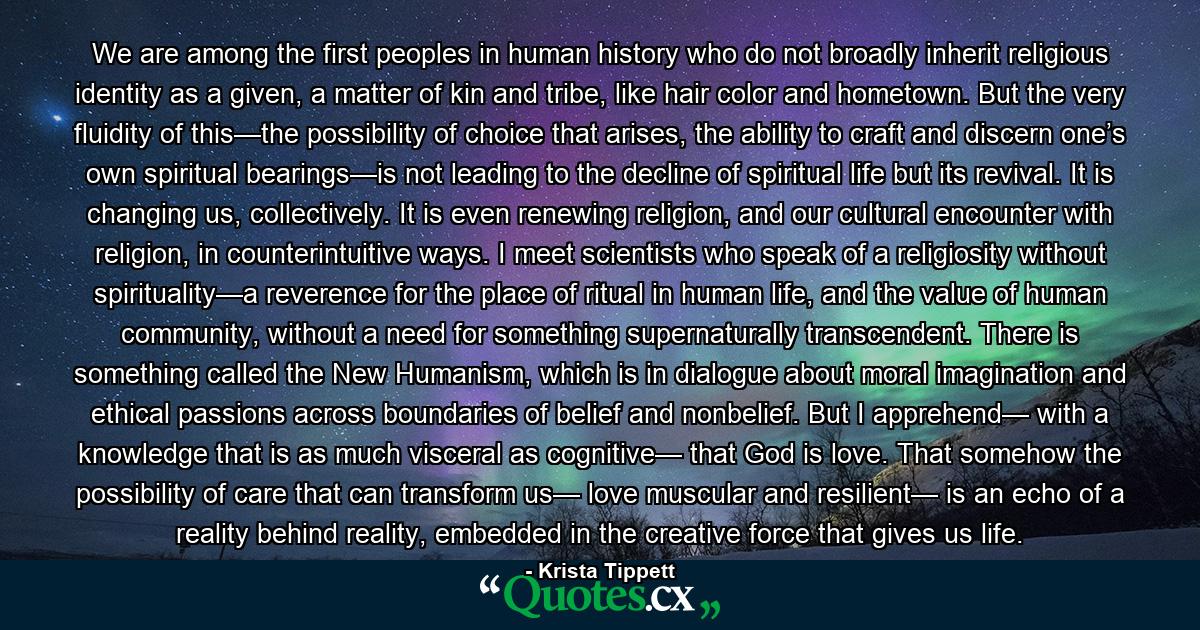We are among the first peoples in human history who do not broadly inherit religious identity as a given, a matter of kin and tribe, like hair color and hometown. But the very fluidity of this—the possibility of choice that arises, the ability to craft and discern one’s own spiritual bearings—is not leading to the decline of spiritual life but its revival. It is changing us, collectively. It is even renewing religion, and our cultural encounter with religion, in counterintuitive ways. I meet scientists who speak of a religiosity without spirituality—a reverence for the place of ritual in human life, and the value of human community, without a need for something supernaturally transcendent. There is something called the New Humanism, which is in dialogue about moral imagination and ethical passions across boundaries of belief and nonbelief. But I apprehend— with a knowledge that is as much visceral as cognitive— that God is love. That somehow the possibility of care that can transform us— love muscular and resilient— is an echo of a reality behind reality, embedded in the creative force that gives us life.
